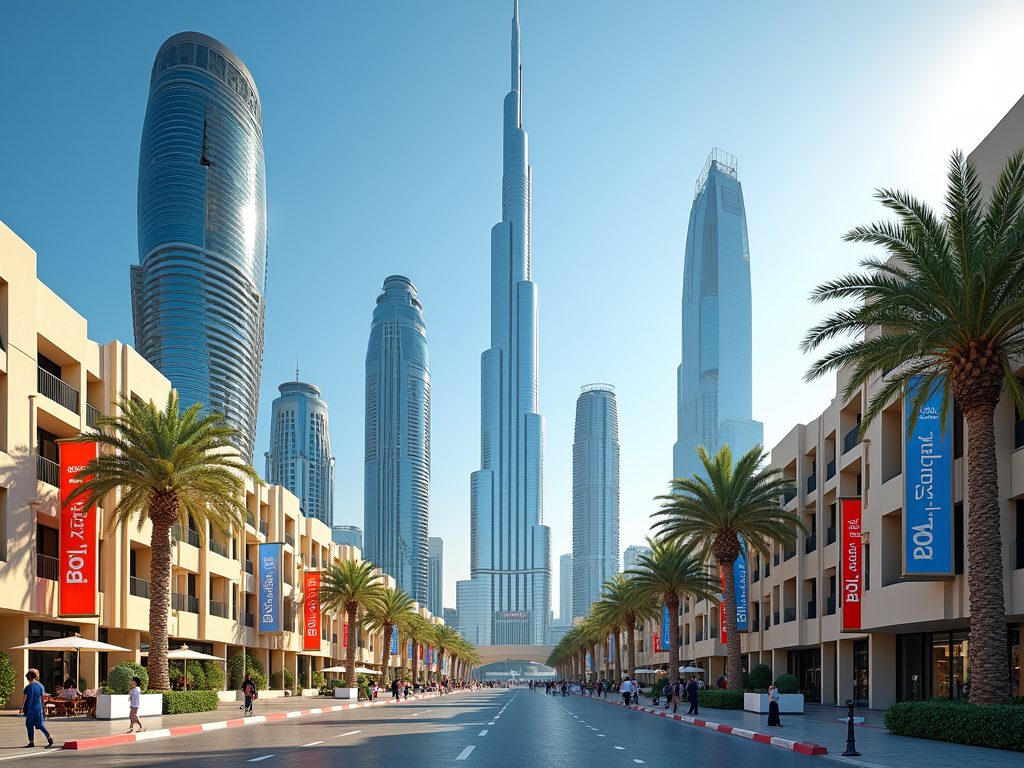Since its introduction in January 2018, Value Added Tax (VAT) has significantly influenced various sectors in Dubai, including real estate. This article delves into how VAT affects property transactions, shedding light on both buyer and seller perspectives. Understanding these implications is essential for anyone involved in the Dubai property market, as it alters pricing strategies and affects overall market demand.
Understanding VAT Basics in the Real Estate Sector

Value Added Tax (VAT) is a consumption tax placed on goods and services, and in Dubai, it stands at 5%. While it is low compared to global standards, its impact on property transactions cannot be overlooked. When it comes to real estate, VAT applies primarily to new properties and commercial transactions, influencing price structures and investor behaviors. Here’s what you need to know:
- Residential properties are generally exempt from VAT, promoting affordable housing.
- New commercial properties are subject to 5% VAT, which can elevate upfront costs.
- Rentals for commercial properties also attract VAT, affecting tenant budgets.
- Historically, VAT has led to fluctuating property prices as sellers adjust for the added costs.
- In certain cases, property buyers can reclaim the VAT, depending on the circumstances.
The Effects of VAT on Property Prices

The introduction of VAT influences property prices in several ways. Sellers may raise prices to accommodate the added tax burden, which can affect demand. When property prices increase, it can lead to a slowdown in the overall market as potential buyers reassess their budgets and purchasing capabilities. Below are some of the most notable effects:
- Increased listing prices on new developments, translating to higher initial investments.
- Potential reduction in investor interest, primarily due to escalated costs.
- Higher expectations for capital appreciation may lead to more cautious buying behavior.
- Shift in demand towards secondary or pre-owned properties that may not attract VAT.
- New tax structures encouraging developers to offer more value-added services to attract buyers.
Investors and developers have felt considerable pressure due to VAT regulations in Dubai’s property market. Developers are tasked with balancing affordability while still delivering profitable projects. The burden of VAT leads developers to rethink their pricing models and marketing strategies. Below are several key impacts on investors and developers:
- Developers may increase project costs to offset VAT, leading to increased property prices.
- Investors might focus on well-priced properties that promise viability despite VAT.
- New strategies such as off-plan sales may become more common to manage VAT implications.
- Developers are incentivized to improve quality and services to attract the discerning buyer.
- Increased transparency in transactions due to the regulatory oversight related to VAT.
Regulatory and Compliance Considerations
Navigating VAT compliance is essential for all participants in the Dubai property market. Buyers need to be aware of their rights while sellers must correctly implement the VAT guidelines. Maintaining compliance not only avoids penalties but also fosters trust among buyers and sellers. Here are some compliance considerations:
- Ensuring all transactions are properly documented to accurately report VAT.
- Understanding exemptions for residential properties and how they affect VAT calculations.
- Consulting with tax professionals for guidance tailored to individual situations.
- Staying updated on any changes in VAT regulations which may influence property transactions.
- Assessing the financial implications of VAT before making investment decisions.
Conclusion
Dubai’s VAT has undeniably reshaped the landscape of property transactions, causing shifts in pricing strategies and buyer psychology. While it presents challenges in affordability and compliance, it also encourages greater transparency and strategic planning among real estate participants. To successfully navigate this new territory, both investors and developers must stay informed about VAT regulations, compliance measures, and market trends. As Dubai continues to evolve, how stakeholders adapt to these tax implications will define their success in the property market.
Frequently Asked Questions
1. What is the VAT rate on property transactions in Dubai?
The VAT rate on property transactions in Dubai is 5%, applicable primarily to new and commercial properties.2. Are residential properties subject to VAT in Dubai?
Residential properties in Dubai are generally exempt from VAT, making them more affordable for buyers.3. Can buyers reclaim VAT on property transactions?
Yes, buyers may reclaim VAT in certain situations, particularly if they are VAT-registered businesses purchasing commercial properties.4. How has VAT impacted property prices in Dubai?
VAT has led to increased prices for new properties, influencing buyer demand and shifting interest toward secondary properties that are not subject to VAT.5. What should developers consider regarding VAT compliance?
Developers should ensure proper documentation, understand exemptions, consult tax professionals, and stay updated on VAT regulations to maintain compliance and avoid penalties.




